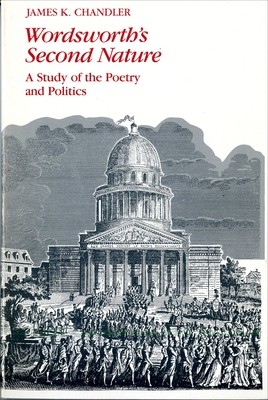
- We will send in 10–14 business days.
- Author: James Chandler
- Publisher: University of Chicago Press
- ISBN-10: 0226100812
- ISBN-13: 9780226100814
- Format: 15.4 x 23.1 x 1.9 cm, minkšti viršeliai
- Language: English
- SAVE -10% with code: EXTRA
Reviews
Description
Wordsworth is England's greatest poet of the French Revolution: he witnessed some of its events first hand, participated in its intellectual and social ambitions, and eventually developed his celebrated poetic campaign in response to its enthusiasms. But how should that response be understood? Combining careful interpretive analysis with wide-ranging historical scholarship, Chandler presents a challenging new account of the political views implicit in Wordsworth's major works-in The Prelude, above all, but also in the central lyrics and shorter narrative poems.
Central to the discussion, which restores Wordsworth to both the French and English contexts in which he matured, is a consideration of his relation to Rousseau and Burke. Chandler maintains that by the time Wordsworth set forth his "program for poetry" in 1798, he had turned away from the Rousseauist idea of nature that had informed his early republican writings. He had already become a poet of what Burke called "second nature"-human nature cultivated by custom, habit, and tradition-and an opponent of the quest for first principles that his friend Coleridge could not forsake. In his analysis of the poetry, Chandler suggests that even Wordsworth's most apparently private moments, the lyrical "spots of time," ideologically embodied the uncalculated habits of an oral narrative discipline and a native English mind.EXTRA 10 % discount with code: EXTRA
The promotion ends in 22d.15:18:21
The discount code is valid when purchasing from 10 €. Discounts do not stack.
- Author: James Chandler
- Publisher: University of Chicago Press
- ISBN-10: 0226100812
- ISBN-13: 9780226100814
- Format: 15.4 x 23.1 x 1.9 cm, minkšti viršeliai
- Language: English English
Wordsworth is England's greatest poet of the French Revolution: he witnessed some of its events first hand, participated in its intellectual and social ambitions, and eventually developed his celebrated poetic campaign in response to its enthusiasms. But how should that response be understood? Combining careful interpretive analysis with wide-ranging historical scholarship, Chandler presents a challenging new account of the political views implicit in Wordsworth's major works-in The Prelude, above all, but also in the central lyrics and shorter narrative poems.
Central to the discussion, which restores Wordsworth to both the French and English contexts in which he matured, is a consideration of his relation to Rousseau and Burke. Chandler maintains that by the time Wordsworth set forth his "program for poetry" in 1798, he had turned away from the Rousseauist idea of nature that had informed his early republican writings. He had already become a poet of what Burke called "second nature"-human nature cultivated by custom, habit, and tradition-and an opponent of the quest for first principles that his friend Coleridge could not forsake. In his analysis of the poetry, Chandler suggests that even Wordsworth's most apparently private moments, the lyrical "spots of time," ideologically embodied the uncalculated habits of an oral narrative discipline and a native English mind.

Reviews